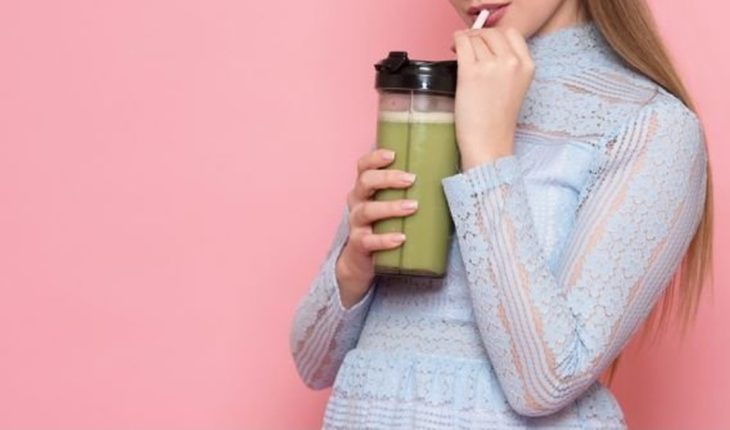fresh juices have become a staple in many diets, especially for those busy and consumers concerned about their health seeking to save some time when you (and perhaps inc Luso chewing) your food without losing nutrients.
Juices have also been associated with the idea that can help to lose weight and to “detoxify” the body.
All this has made an extremely lucrative business of juices. In fact, the global market of juices of fruits and vegetables was valued at US$ 154.000 million in 2016 and is expected to grow.
But are the juices really as healthy as we think?
The importance of fiber “In fruit juices is eliminated almost all of the fiber,” says Emma Elvin, consultant clinical Chief of the charity Diabetes UK.
Is for this reason that fructose (a natural sugar that is found in all fruits) in the juices counts as “sugar free”, a group that includes honey and sugars that are added to foods.
The problem is that, once removed the fiber, juice fructose is absorbed more quickly.
The sudden increases in blood sugar makes the pancreas to release insulin to return to a stable level. Over time this mechanism can be exhausted, thus increasing the risk of developing type two diabetes.
Getty ImagesDebido to juice them removed most of the fiber, the fructose is considered as “sugar free”, which is less healthy. In 2013, a group of researchers analyzed information about the health of 100,000 people, collected between 1986 and 2009.
What they saw is that, since liquids pass the stomach to the intestine faster than solids, even when the nutritional content is similar to the whole fruit, juices generate more marked and more rapid changes in the levels of glucose and insulin.
Another study found a relationship between fruit juice and diabetes type 2, after follow diets and status of diabetes more than 70,000 nurses in a span of 18 years. Again the fiber was one possible explanation.
And although they can provide more nutrients and less sugar, vegetable juices, still lack fiber.
Diets high in fiber are associated with a lower risk of developing coronary heart disease, stroke, high blood pressure and diabetes. He is recommended that adults consume 30 grams of fiber a day.
At the same time, the World Health Organization recommends that adults should avoid consuming more than 30 g of sugars added to the day, which equals to 150ml of fruit juice.
Getty ImagesLos vegetable juice may have less sugar than those who are only fruit, but they still lack fiber. General excesses analyzing 155 studies, John Sievenpiper, Associate Professor of the Department of Nutrition Sciences of the University of Toronto, was proposed clarifying the relationship between sugar-sweetened beverages and health – including the risk of diabetes and cardiovascular diseases – applied also to the food and drinks that we consume as part of a healthy diet.
As result found negative effects on the blood sugar in fasting and insulin levels when foods containing an excess of calories from sugars, including fruit juice.
However, when there was generally no excess calories, there were some advantages in the consumption of fruits with juice.
Sievenpiper concluded that the recommendation of 150ml of juice a day, which is the average measure, is reasonable.
Although we know that fruit juice can cause diabetes, if a high calorie diet is, it is less clear how the juices affect health in the long term from those who are not overweight.
Getty ImagesEn a meta-analysis found that when there was an excess of calories in general, fruit juice had health benefits.” There is still much that we don’t know about how it changes the risk with the increase in sugar in the diet without gaining weight”, says Heather Ferris, an Assistant Professor of medicine at the University of Virginia.
“As time and what as well can the pancreas keep abreast with sugar depends in part on genetics”, adds.
But we have a higher risk of consuming more than the recommended daily amount of calories (between 2,000 for women and 2,500 for men) the days we drink juice, according to research.
Numerous studies have shown that drinking fruit juice does that we eat less throughout the day.
A study published last year could have found the way to healthier juices with a twist.
The researchers used a blender ‘extracting nutrients’ which, unlike traditional juicers, extracted the juice of the fruit, including the seeds and Peel.
They measured the effects of a mixture of fruits and peeled mango through a nutrients ‘cooker’ in comparison with another group that consumed the whole fruit.
Getty ImagesLicuar whole fruit, rather than squeeze it by removing the seeds and skin, it may be better for the saludAquellos who took nutrients extract showed one increase lower in the blood sugar compared with those who ate only fruits mixed. There was no difference between those who took the mango juice or those who ate the whole handle.
But this was a small study and researchers not compared his findings with juices made by some other method, and squeeze the juice and leave the peel and seeds.
Gail Rees, Plymouth University human nutrition professor and researcher of the study, said that the findings were probably result include the seeds in the juices. But, he adds, it is difficult to give specific advice on the basis of the study.
“Definitely it would continue the current Council of 150 ml of fruit juice a day, but if you use an extractor of nutrients at home, this could be kept relatively stable blood sugar levels,” he says.
Getty ImagesUsar ripe fruit is a way to do more healthy juices. The issue is that, although leave the seeds in the juice may help digestion, Ferris adds that this does not necessarily impact what both full.
“(Let the seeds or fibre) is however better than traditional juice”, says Ferris.
Another way to improve the effects of fruit health juice is to find ripe fruit to retain as much as possible of their properties, a sane with Roger Clemens, Professor of pharmaceutical sciences of the University of Southern California.
It is also important to take into account that there are methods of extraction that work best with certain fruits, found Clemens.
Grapes, for example have most of their phytonutrients in the seed and very little in the pulp. And most of the phenolic compounds and flavonoids beneficial of the Orange are in the shell, which is lost in the traditional extractions.
Getty ImagesLos juices are not a replacement of whole fruits and vegetables. Demystifying Detox a common argument in favour of fruit juices is that they can help to detoxify the body.
However, the only medically recognized use of the word “Detox” refers to the Elimination of harmful substances such as drugs, alcohol and poison.
In addition, juices are not a panacea to obtain nutrients, or the ideal way to comply with the recommendation of 5 daily fruits.
“People try to eat five fruits a day and don’t realize that it is not only to obtain vitamins,” says Ferris.
“It is also important to reduce the carbohydrates of grain, protein, and fat in the diet and increase fiber.”
So while fruit juice is better than the absence of fruit, there are limits. The risk is when to consume more than 150 ml of sugars a day or when we move from the recommended calories.
Yes, they have vitamins, but fruit juices are not a quick fix.
Read the original note in English.
Remember that you can receive notifications of BBC News World. Download the new version of our app and activate them so you don’t miss our best content.
https://www.youtube.com/watch?v=zP7BxAe6k4k https://www.youtube.com/watch?v=8d_Bfnkb4tw thanks for reading! Help us to continue with our work. How? You can now subscribe to political Animal on Facebook. With your monthly donation, you will receive special content. Find out how to subscribe here. Check our list of frequently asked questions here.
translated from Spanish: Why take juices is not so good for health
January 29, 2019 |





